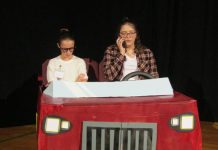Friends are the bacon bits in the salad of life. Homer Simpson When writing, it is customary and proper to place a space between words. Each space marks an ending and anticipates a beginning. Spaces translate from the page to spoken language as pieces of time allowing the speaker to formulate the next word and…



